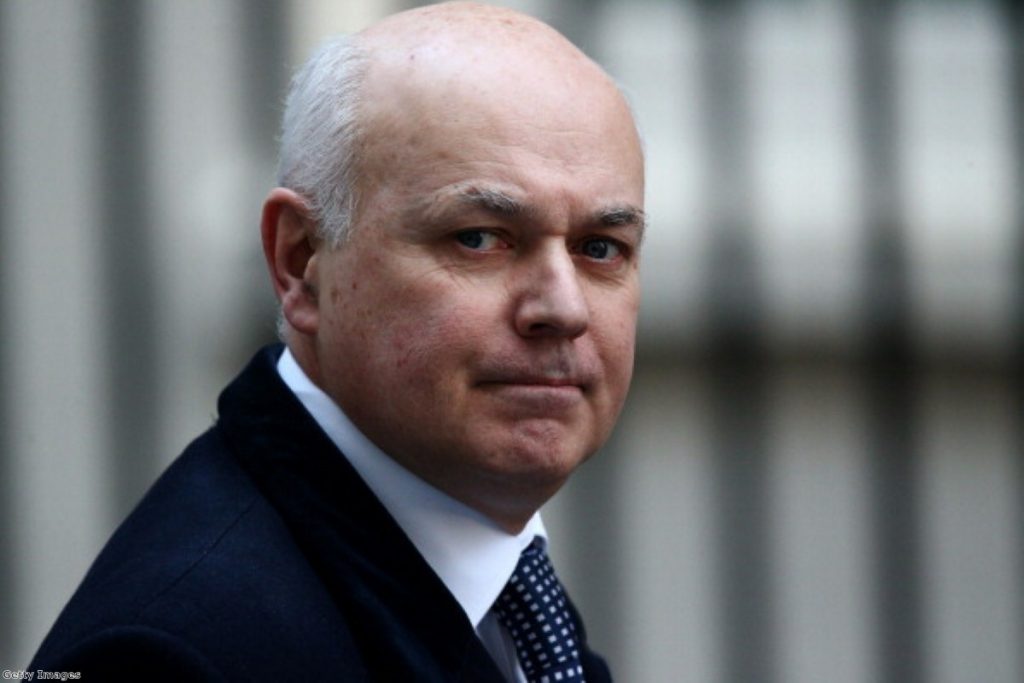Universal Chaos: Iain Duncan Smith’s welfare scheme in doubt
The future of Iain Duncan Smith's welfare troubled universal credit scheme was thrown into doubt yesterday after it was revealed the Treasury refused to sign off its business case.
Last month, employment minister Esther McVey insisted to parliament that the Treasury had approved the government's flagship welfare reform.
In a written answer to Labour's Rachel Reeves, she claimed that "the chief secretary to the Treasury has approved the [universal credit] Strategic Outline Business Case".
This has now turned out to be false.


Speaking to MPs yesterday, the head of the civil service admitted that the Treasury have still not signed off the scheme.
"We shouldn't beat about the bush," Bob Kerslake told MPs. "It hasn't been signed off."
The admission sparked speculation that ministers are set to ditch the troubled programme, if they form another government in 2015.
Labour have also distanced themselves from universal credit.
Although still publicly committed to the scheme in principle, the party say they will conduct a "warts and all" review into its future and do not rule out scrapping it altogether.
"This is more evidence of the chaos surrounding universal credit and it raises worrying questions about George Osborne’s refusal to endorse his government’s flagship welfare reform scheme," Labour's shadow welfare minister Chris Bryant said today.
"It's time for David Cameron to call in the National Audit Office (NAO) as a matter of urgency to get to the bottom of the true extent of the chaos surrounding universal credit."
An investigation by the NAO last year, found that the scheme suffered from "weak management, ineffective control and poor governance," and had "not achieved value for money".
The Major Projects Authority also revealed Duncan Smith's scheme had been 'reset' by auditors, following earlier assessments that the scheme at serious risk of failure.
The full scale of problems facing universal credit have yet to become apparent.
The DWP is continuing to block the publication of critical reports outlining failures within the scheme.









